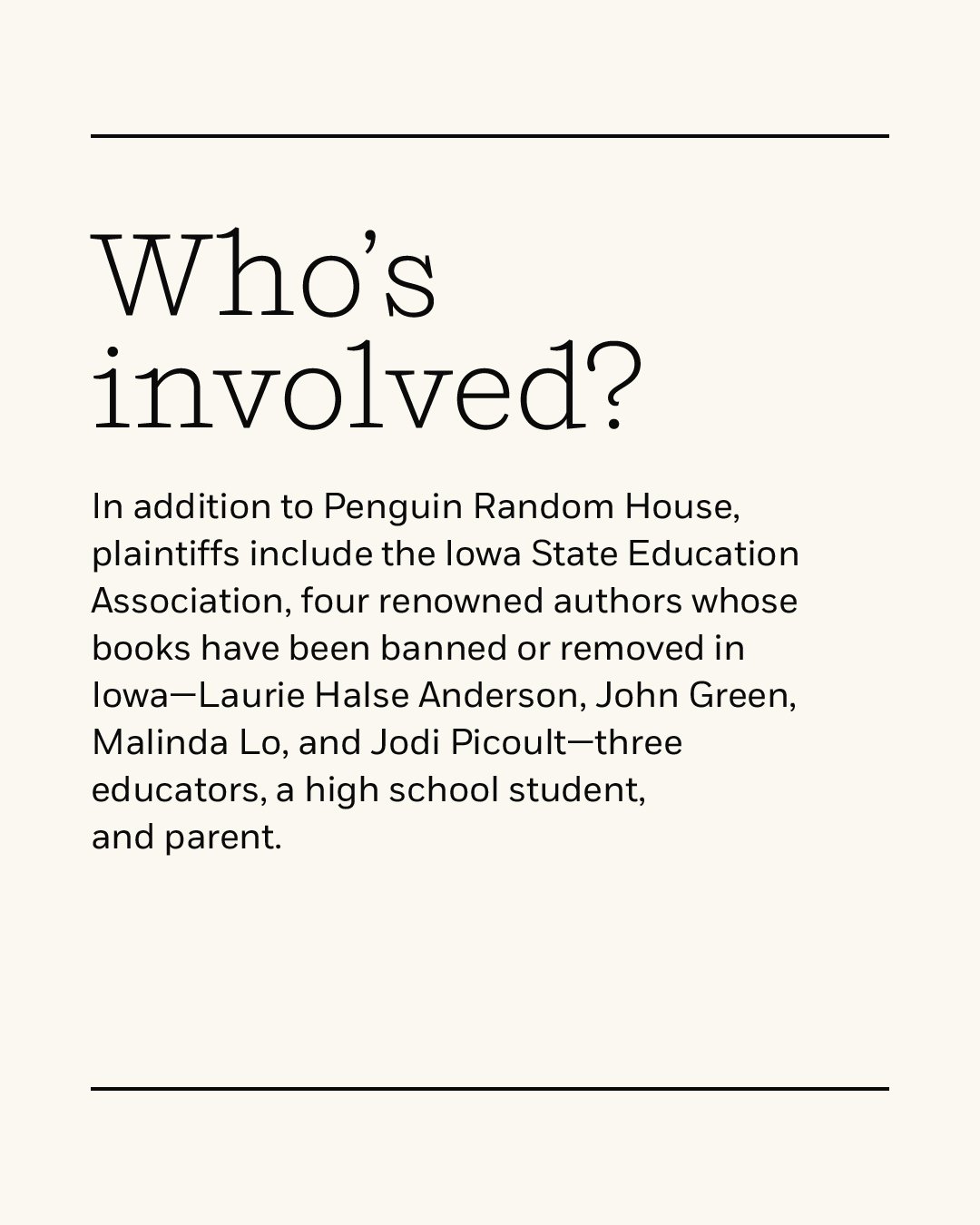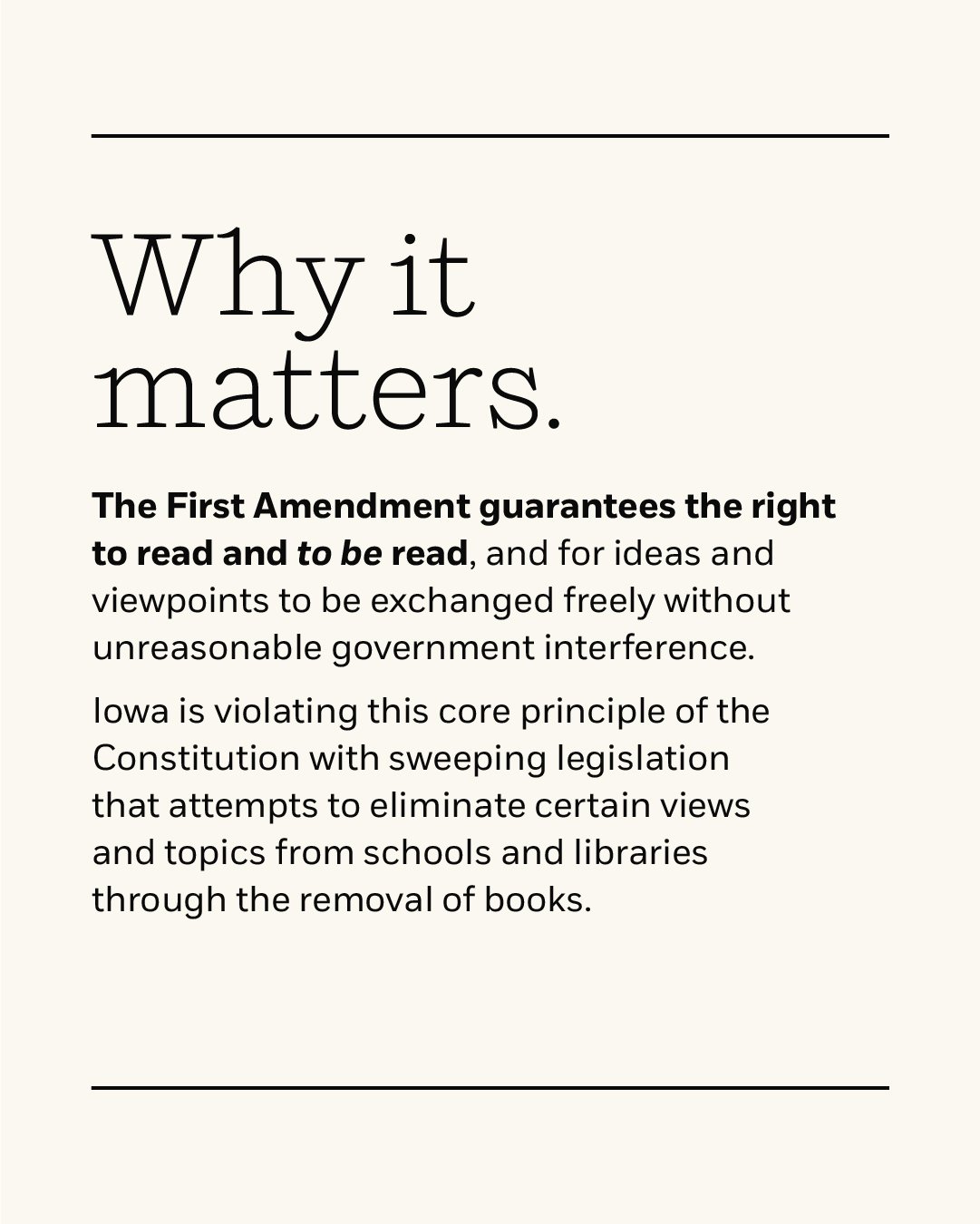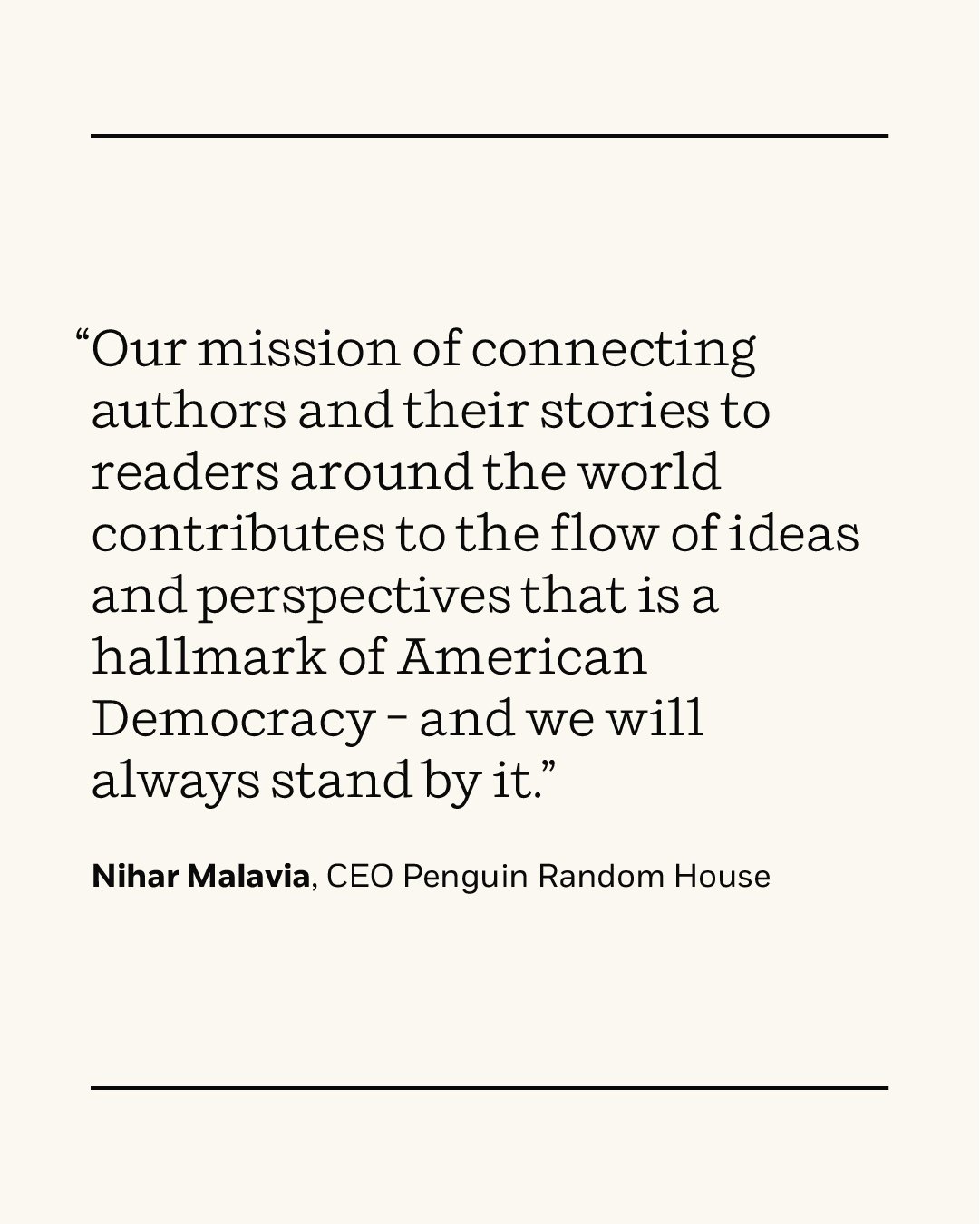I'm a plaintiff in a lawsuit against the state of Iowa's 2023 book banning law
Yesterday, I joined my publisher, Penguin Random House; the Iowa State Education Association; authors Laurie Halse Anderson, John Green, and Jodi Picoult; three Iowa educators; and an Iowa high school student and parent in filing a lawsuit against the state of Iowa and challenging Senate File 496, which was enacted in May 2023.
SF 496 prohibits books featuring any description or visual depiction of sex—regardless of context—from public school and classroom libraries, covering students all the way through twelfth grade. SF 496 also prohibits books relating in any way to gender identity or sexual orientation from school and classroom libraries for students through sixth grade.
My novels Last Night at the Telegraph Club and A Scatter of Light have been banned in at least seven Iowa school districts as a result of SF 496. Yesterday, during the press conference announcing the lawsuit, I read a statement about why I chose to join as a plaintiff. The video of the press conference may be viewed on YouTube, and below is the full text of my statement.
Statement by Malinda Lo
Two years ago, in November 2021, I won the National Book Award in Young People’s Literature for my novel Last Night at the Telegraph Club. During my acceptance speech, I warned of a rising tide of book bans targeting books about people of color and LGBTQ people. I said, “I urge every one of you watching to educate yourselves about your school boards and vote in your local elections. 2022 is coming and we need your support to keep our stories on the shelves. Don’t let them erase us.”
Last Night at the Telegraph Club is a coming-of-age novel set in 1950s San Francisco during the time of McCarthyism, about a 17-year-old Chinese American girl, who is discovering her identity as a lesbian. It is a novel about family, community, and falling in love for the first time. In the two years since it won the National Book Award, it has been banned, challenged, or restricted in over 40 school districts and communities across the country, including six in Iowa alone. Last Night at the Telegraph Club is one of the only—if not the only—historical novel for young adults about a Chinese American lesbian. In those 40 communities, those bans effectively erase all representation of this experience.
I am a Chinese American lesbian myself, and since Telegraph Club was published, many queer Asian Americans have reached out to me to tell me how much this book meant to them, because our lives are so often invisible in our culture. Seeing yourself in a book can be a transformative and empowering experience—one that I rarely had when I was growing up. This is why I write about queer and Asian American characters. I’m writing the books that I want to read, the books I needed as a teen.
So when my publisher informed me of this lawsuit, I immediately knew that I wanted to join as a plaintiff for two reasons.
First, I'm an immigrant. I came to the United States with my family from China when I was about three and a half years old. I grew up in Boulder, Colorado, knowing that we came to this country to escape the oppression of the Chinese Communist government, which does not allow freedom of expression. So I've always valued my First Amendment rights to freedom of speech, and when these book bans started, and when my books started to be banned, it felt to me like a direct attempt to suppress my freedom of speech. These bans go directly against the ideals of this country.
The second reason I wanted to join this lawsuit is because I feel a responsibility to my queer and Asian American readers—a responsibility to stand up for them and their rights to read about people like them. I’m the author of seven young adult novels so far, and all of them are about queer teen girls. Over the years, I’ve received countless messages from my readers, many of them queer teen girls, who tell me that reading my books have comforted them, have made them feel seen, have shown them that it's okay to be who they are. These book bans are clearly trying to stigmatize queer identities and queer sexuality, and I want to make it clear to everyone, but to my readers especially, that there is nothing shameful about queer sexuality. There is nothing shameful about being queer, period.
I’m grateful for this opportunity to stand up for my readers and for the first amendment. Thank you.





